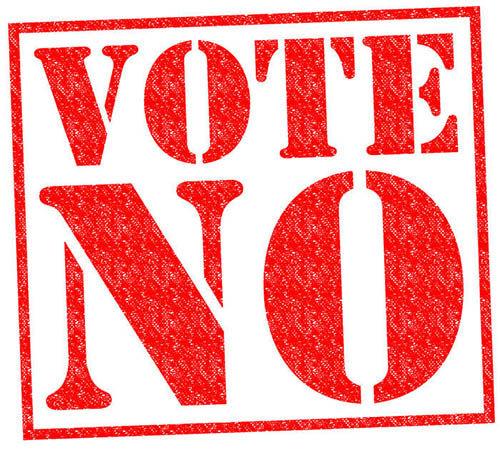Published October 19, 2022
Vote No on Measure ULA in November!

On the November 8th election, Los Angeles city voters will decide on imposing an additional tax on commercial and residential property sales. Known as Measure ULA, the property tax would be as follows:
- A 4% tax when a property sells/transfers between $5 - $10 million.
And
- A 5.5% tax when a property sell/transfers for $10 million or more.
This tax is being proposed at a time when real estate is in the middle of a historic decline in sales and is facing numerous headwinds including rising interest rates, recession fears, and high construction costs. If passed, this tax would be a veritable death blow to high-end real estate and it would place significant negative pressure on all real estate values at every price point. This would damage the entire real estate market in Los Angeles for homeowners, property investors, developers, and any profession connected to the sale and construction of real estate.
I am not philosophically against wealth taxes, but this initiative was not thought out by rational businesspeople, and it defies common sense and basic logic. The tax should be based solely on your profit (if any). How is a tax on the gross sale price fair and reasonable when profit and loss are not factored in? Additionally, the measure does not take into consideration the seller’s age. In my opinion, there should be an exception for people over 65 or 70 years old. There should also be an exception for developers of multi-family properties who would add to the supply of apartments for rent in the City. This measure, if passed, will make rents even more expensive.
The tax is also limited to property located in the City of Los Angeles and thus fails to consider that developers and homebuyers could just leave Los Angeles for Beverly Hills, West Hollywood, or ANY other city without this tax. Or they might just decide to invest or buy in another state, as so many people are already doing. And there is no reason to think that proponents of this provision won’t try to go after homes in Los Angeles valued under $5 million in the future.
Take three examples below showing how this tax might deter homeowners and developers:
Scenario 1
A homeowner buys a property for $5,500,000 and later sells it in a declining market, for $5,000,000. Not only will this homeowner lose $500,000, but they would also have to pay an additional Measure ULA tax of $200,000. Including existing closing costs of 6%, the homeowner would lose approximately $1,000,000.
Scenario 2
A homeowner buys a property for $5,000,000 and later sells it in an appreciating market, for $5,500,000. After paying existing closing costs of 6%, and paying an additional Measure ULA tax of $220,000, this homeowner would lose $50,000 despite the house appreciating $500,000.
Scenario 3
A developer buys a piece of land for $2 million and builds a 10-unit apartment building on the land, at a cost of $6 million. He then sells the building for $10 million, for a $2 million gross profit. After carrying costs (approx. $500k), closing costs (approx $600k), and an additional 5.5% Measure ULA tax of 5% ($550k), the developer makes only $350,000. After Fed./State capital gains tax of approx. $120k, the developer nets $230,000 on his $8 million investment and after three years of work. This makes ZERO sense for any developer, they simply won’t develop. That equates to less than a 1% net annual return on their investment. You can do better than that in a risk-free and tax-free government bond.
This Measure ULA is even more concerning when you consider the City’s utter failure to reduce homelessness with the previous $1.2 billion they received in 2016 from Measure HHH. As the LA Times writes...
Opponents [of Measure ULA] say the tax could drive up rents and make Los Angeles a harder place to do business, causing firms to flee the city.
They invoke Proposition HHH, the city’s much-criticized $1.2-billion homeless housing bond program approved by voters in 2016, which has been beset by cost overruns and delays. As of August, about 6,300 units of housing funded by the bond were under construction. A controller’s report about the work in 2021 found that 14% of the HHH units in construction at that time would cost more than $700,000 each to build.
“Why would we raise more money and tax people on the sale of their property ... when we have failed to address homelessness with the billions that have come before,” said the Rev. Andy Bales, who runs the Union Rescue Mission, one of the city’s largest homeless shelters on skid row.
That money has “been wrongly spent. It takes too long to develop these units. Once we develop them, they’re too expensive. They’re not sustainable and then the alcohol and drugs just freely flows,” Bales said.
Here is another excerpt from the recent LA Times article that is poignant...
Billy Lehman Goodyear, a residential real estate developer, said he recently pulled out of the purchase of a piece of land in Brentwood when he heard about the tax. He planned to build two homes there but then calculated the impact on his business if the measure were to pass.
“This new tax ... coupled with the downward shift of home prices that the tax will likely cause, will render the work of many home developers unprofitable and will force many to cease developing in the city of Los Angeles,” he wrote in an email, noting that the measure taxes the entire value of a sale and eats up much of the profit he makes on a development.
“For many, this tax will be the knockout blow.”
Additionally, if Measure ULA passes, it will cause a significant reduction in sales that will reduce CA’s annual property tax revenue which largely pays for our education system. Using Scenario 3 above as an example, if the developer doesn’t buy the land at $2 million and sell the developed land at $10 million, CA will lose additional property tax revenue of more than $80,000 annually.
Proponents of Measure ULA did not consider any reduction in development activity, sales activity, or reduction in the State’s property tax revenue when they told the public how much the tax would raise. In fact, they didn’t consider the negative ramifications of this tax at all.
I am not against wealth taxes when intelligently applied and implemented, but this tax is a travesty of common sense and will cause far more harm than good. Please vote NO on Measure ULA.





